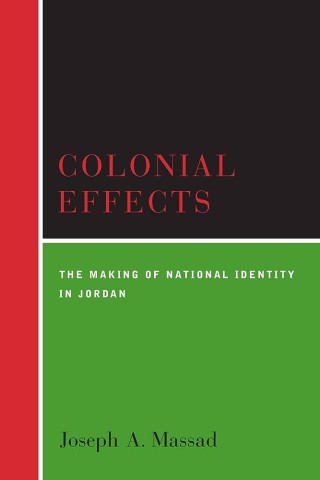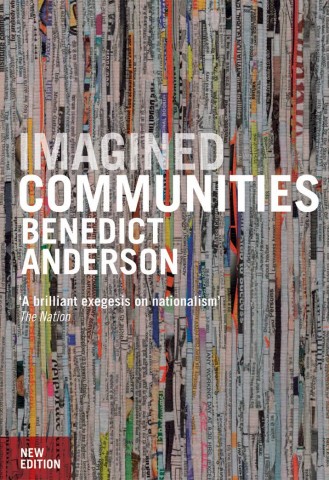Emerging out of a PhD study, Joseph A. Massad published "Colonial Effects: The Making of National Identity in Jordan" (2001). This is a fascinating book, which should be more widely read. Although it focuses on Jordan, there are insights for research on nationality, nationalism, colonialism, decolonization, and identity, in additional to Middle Eastern studies. Some notes:
"… the production of national identity and national culture within Jordan as both a typical and atypical post-colonial nation-state… More specifically, I examine whether two key state institutions, law and the military, assist in the production of the nation. Recent studies of nationalism describe the nation as "invented" or "imagined," by intellectuals and/or political elites who are producers of, or produced by, the political discourse of nationalism. In this study, I am more interested in whether institutions play a role in the production of colonial and postcolonial national identity and culture… Law and the military were central institutions set up by the colonial powers in the colonies. They replaced existing juridical and military structures, or introduced them to societies that did not have them before. Both law and the military retain their colonial markings as European institutions established to serve the colonial state. As Frantz Fanon has shown, however, once national independence is achieved, the new nation-state elites replace their colonial masters in administering the same institutions that were used to control them." (p. 1)
"The establishment of paternity as the source of nationhood has been enshrined in British nationality laws since the nineteenth century. In the exemplary case of Britain, as Francesca Klug demonstrates, "women were only allowed to reproduce the British nation on behalf of their husbands. They could not pass their nationality to their children in their own right." In fact, British women who married outside the nation lost their British nationality, as did their children. On the other hand, the children of British men and non-British wives would be automatically British, as would the non-British wives. Some of these laws were changed in 1981 and 1985, when British women won the right to transfer their citizenship to their own children born abroad.51 It is the former British model that was transported to the colonies." (p. 35)
"The school system became instrumental in the production of the British imagined "Transjordanian." It is in those schools, or what Althusser calls the ideological state apparatus, that a gendered Transjordanian nationalist agency was first conceived. The responsibility of the military school system was to teach the boys a new ideology, nay a new epistemology, through which they were to apprehend their identity as well as the function it was to have: "The need for the production of Arab officers cadets, apprentice tradesmen and future NCO's from Arab Legion schools was to become more pressing as time went on. The government schools were saturated with politics, and many school-teachers were Communists. In Arab Legion schools, every effort was made to teach the boys a straightforward open creed—service to king and country, duty, sacrifice and religion [emphasis added]. Glubb reduces this formulaic creed to its bare essentials. In the "military preface" to Abdullah's memoirs, written for the benefit of the troops in a special edition released to them, he says, "All that we soldiers have to do is to do our duty to God, the King and the nation [emphasis added]."" (p. 150)
"Through the disciplinary mechanisms of surveillance and education, Glubb's policies not only repressed and erased much in the Bedouins' way of life that conflicted with imperial interests but also produced much that was new and combined it with what was "inoffensive" and "beneficial" in their "tradition" in a new amalgam of what was packaged as real Bedouin culture. The new Bedouin culture in fact sublated much of pre-imperial Bedouin culture foreclosing certain venues while opening a myriad others, erasing practices while preserving and transforming others." (p. 159)
"After the end of formal colonialism, national identities and cultures in the postcolonies are not only modes of resistance to colonial power, they are also the proof of colonialism's perpetual victory over the colonized. The irony of this is in having us believe that this colonial subjection and subjectivation is anticolonial agency." (p. 278)


